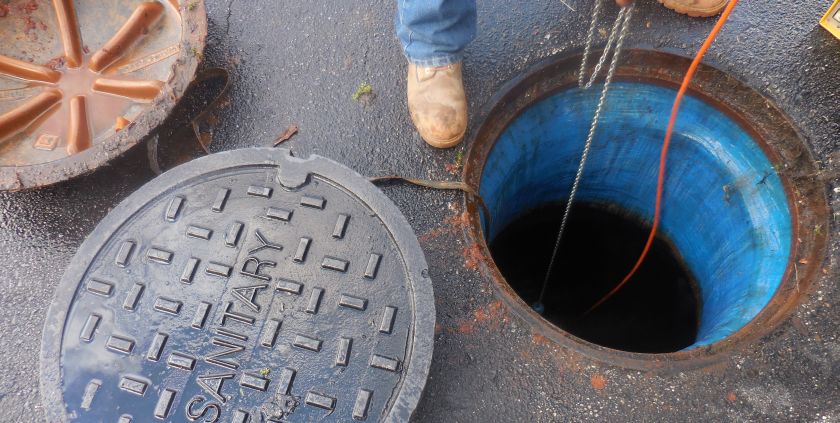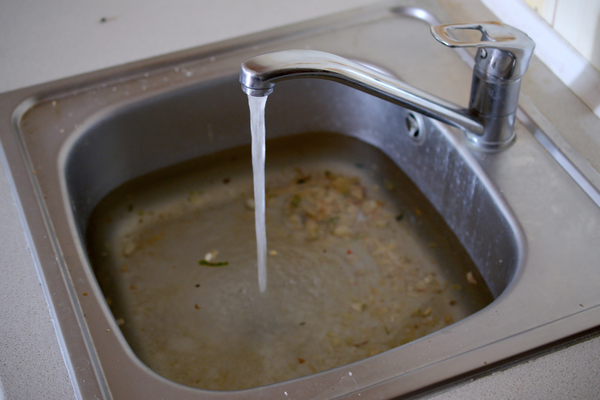How to Clear a Blocked Drain Prior to Contacting Plumbing Experts
How to Clear a Blocked Drain Prior to Contacting Plumbing Experts
Blog Article
Are you currently looking for selective information on What I learned from trying to deal with a clogged drain?

Intro
Taking care of an obstructed drainpipe can be an aggravating experience, disrupting everyday tasks and potentially creating damage to your property. Nevertheless, before reaching out to pipes professionals, there are steps you can require to address the concern yourself. In this overview, we'll explore do it yourself remedies and safety nets to tackle a blocked drainpipe successfully.
Identifying the Concern
The first step in dealing with an obstructed drainpipe is acknowledging the indications. Sluggish drain, gurgling sounds, foul odors rising from drains, or water support up prevail signs of an obstructed drainpipe. Determining these signs early can assist stop even more issues.
Choosing the Right Plumbing Solution
When selecting a plumbing solution, think about aspects such as experience, licensing, and consumer evaluations. Select a credible plumber with a track record of quality workmanship and clear pricing methods.
Expense Considerations
The expense of professional drain cleaning services can vary depending on the intensity of the clog and the plumbing professional's rates. Request quotes from numerous providers and ask about any kind of surcharges to guarantee openness and avoid shocks.
Security Measures
When attempting DIY drainpipe cleaning, focus on safety and security. Wear protective handwear covers and eyewear to avoid contact with unsafe chemicals or microorganisms. Never mix different drainpipe cleansing products, as this can create unsafe fumes.
Case Researches
Real-life examples illustrate the performance of do it yourself solutions and the value of timely specialist treatment in dealing with drain blockages.
Common Root Causes Of Blocked Drainpipes
Comprehending the elements that contribute to drain pipes blockages is important for reliable resolution. Typical culprits include hair, soap scum, oil, food particles, and international things like sanitary products or paper towels. Tree origins attacking underground pipes can also create considerable blockages.
Do it yourself Solutions
For minor clogs, several do it yourself remedies can be effective. Pouring boiling water down the drain can aid dissolve grease and debris. Baking soda and vinegar or a mixture of salt and baking soft drink can serve as all-natural cleansers. Using a bettor or plumbing serpent to remove blockages is an additional option.
Devices and Equipment
Having the right devices on hand can make DIY drainpipe cleansing much more efficient. A bettor is a flexible device for getting rid of obstructions in sinks, bathrooms, and showers. A plumbing snake or auger can get to deeper clogs, while drain cleansing chemicals can be used meticulously for persistent obstructions.
Safety nets
To prevent future clogs, embracing safety nets is vital. Install drain guards or strainers to capture hair and particles prior to they enter the pipelines. Frequently flush drains with warm water to liquify oil accumulation, and stay clear of taking care of oil or solid waste down the drain.
When to Call a Specialist
While do it yourself services can solve minor blockages, particular indications show the need for specialist support. Consistent blockages, foul odors despite cleaning initiatives, or numerous drains backing up all at once are red flags that necessitate professional treatment.
Final thought
By following the ideas outlined in this overview, you can properly take on blocked drains and avoid future pipes problems. Whether choosing DIY solutions or looking for expert assistance, punctual activity is essential to maintaining a healthy and balanced pipes system and preserving the stability of your home.
How to Clear a Clogged Drain Yourself (And When to Call In the Professionals)
What Can Clog a Drain
Dirt Skin flakes Hair Grease Soap scum Food Offset pipes Tree roots Small objects Mineral buildup DIY Tricks to Unclog a Drain
You can fix this! Once you have identified the source of the clog (or have a vague idea), you can try one or a combination of these fixes in order to clear your plumbing.
Wire Hanger or Snake
Untangle and clear out hair from a drainpipe with a homemade snake. Use a straightened-out wire hanger with a 90-degree angle hook to locate the clog and drag out any unwanted material.
Remember not to push the clog further down to where the wire hanger cannot reach! If you need to follow up with a plunger, give it a try. Your efforts might be more successful after it’s been wire-snaked.
If you want to get fancy and don’t have a wire hanger to spare, head to the store and pick up a hand-operated drain snake. You can get one for $10-$30. It may save you the hassle, and provide additional length to reach deep into the clogged pipe.
Plunger
A cup plunger has a suction cup attached to a wooden handle. The rubber creates a seal around the drain, and increases the pressure force of the plunger.
Plunge for 30-second increments to loosen the clog. This may need to be repeated over the course of 15-20 minutes. Once plunged, run the water to flush the remaining material out of the drain.
Remember– never use a plunger if you have used a chemical drain cleaner. These chemicals can splash up from the force of the plunger and cause serious injury or burns.
Boiling Water
Hot water can sometimes break up materials into a flushable amount. Dirt, grease, and soap buildup requires heat in order to unstick from surfaces.
Take your kitchen kettle and heat your water to a boil. Once it reaches a rolling boil, pour it directly down the drain into the blockage. Carefully follow with plunging, if necessary.
Don’t worry if this takes more than one try! It can often take multiple kettles and repeated plunging in order to clear a particularly stubborn clog.
Chemical Drain Cleaner
As a last resort, pick up a bottle of chemical drain cleaner. Drain-cleaning chemicals are potent, and not very good for the environment.
You may need to wear protective eyewear in gloves before handling your bottle of chemical drain cleaner. Follow the instructions printed on the bottle, and flush with water as soon as the instructions allow. Do not follow with plunging.
Baking Soda and Vinegar
As a safer alternative to chemical drain cleaner, baking soda and vinegar can create a chemical reaction that clears tough clogs.
Combine one cup of cleaning vinegar with one cup of boiling water, and set aside. Once you have done this, pour half a cup of baking soda down the drain. Give the baking thirty seconds to settle and cover a large portion of the problem drain.
Following the baking soda, pour down your vinegar and hot water solution. Once the vinegar and baking soda combine, the mixture will bubble and fix. Let this reaction fizzle in the drain for about an hour.
After an hour, follow with a kettle’s worth of hot water. The heat and liquid should flush out any remaining material.
When to Call a Plumber
If your DIY attempts haven’t cleared your clog drain, it’s time to call in a professional. It’s not worth losing access to your kitchen sink or high-traffic bathroom. A clog in a vital area can keep you from the things you’d rather be doing, and derail your routine.
Anytime a clog is causing water to spread is a time to call in a plumbing service. What starts out as a little bit of water can quickly grow into serious, expensive water damage.
Additionally, a serious clog can result in burst pipes or serious leaks. Make sure you know when to take it seriously!
https://myguysnow.com/how-to-clear-a-clogged-drain-yourself-and-when-to-call-in-the-professionals/

We were made aware of that report about from an associate on our other domain. Be sure to pause to distribute this blog posting if you appreciated it. Thank you so much for your time invested reading it.
Learn More Report this page